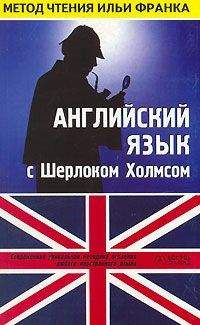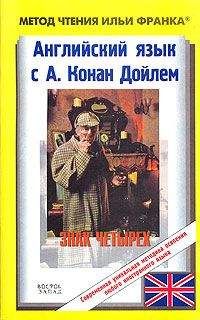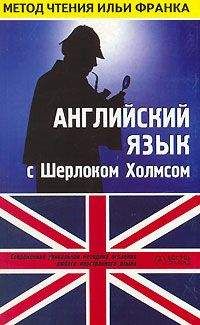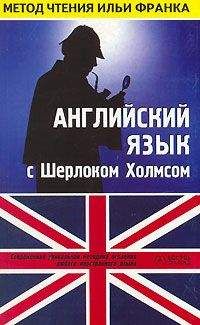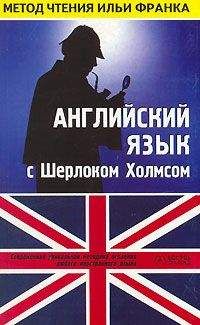Holmes sat down and listened (Холмс сел и /принялся/ слушать; to sit down).
“It all seems to centre round that bust of Napoleon (кажется, все это /дело/ связано с тем бюстом Наполеона; to center /a/round — сосредоточиваться /на чем-либо/, скапливаться, собираться вокруг /чего-либо, кого-либо/; centre — центр, средоточие) which I bought for this very room about four months ago (который я купил для этой самой комнаты примерно четыре месяца назад; to buy). I picked it up cheap from Harding Brothers (я приобрел его по дешевке в /магазине/ братьев Хардингов; to pick up — поднимать, подбирать; заезжать /за кем-либо/; покупать /по случаю или недорого/), two doors from the High Street Station (недалеко от Хайстритского вокзала; door — дверь; дом, квартира, помещение; next door — в соседнем доме, по соседству, рядом; High Street — Главная улица /название главной улицы во многих городах/; station — железнодорожная станция, вокзал). A great deal of my journalistic work is done at night (значительная часть моей журналистской работы делается ночью = как правило, я готовлю статьи по ночам; a great deal of — много, значительное количество; to do-did-done), and I often write until the early morning (и часто пишу до раннего утра). So it was to-day (так же было и сегодня). I was sitting in my den (я сидел в своем кабинете; den — берлога, логово, нора; маленькая, тесная комнатка, каморка; рабочий кабинет), which is at the back of the top of the house (который находится в конце верхнего этажа; top — верхушка, вершина; верхняя часть; top floor — верхний, последний этаж), about three o’clock (около трех часов), when I was convinced (когда мне показалось; to convince — убеждать, уверять /в чем-либо/, доводить до чьего-либо сознания) that I heard some sounds downstairs (что я слышал какие-то звуки = шум внизу; sound — звук; шум; downstairs — низ, нижний этаж здания; to go downstairs — спуститься, сойти вниз). I listened, but they were not repeated (я прислушался, но он не повторился), and I concluded that they came from outside (и я решил, что он донесся с улицы; to conclude — заканчивать/ся/; делать вывод, приходить к заключению; outside — снаружи, извне; на улице). Then suddenly, about five minutes later (затем внезапно, минут пять спустя), there came a most horrible yell (раздался совершенно ужасающий вопль; yell — пронзительный крик, вопль) — the most dreadful sound, Mr. Holmes (/это был/ самый ужасный звук, мистер Холмс; dread — ужас, /благоговейный/ страх), that ever I heard (что я когда-либо слышал). It will ring in my ears as long as I live (он будет звучать у меня в ушах до конца моих дней: «до тех пор, пока я живу»; to ring — звенеть; звучать, раздаваться; as long as — пока; до тех пор, пока; long — долго, длительно; длинный, долгий, продолжительный).
bought [bɔ:t], convinced [kǝnˈvɪnst], concluded [kǝnˈklu:dɪd], ear [ɪǝ]
Holmes sat down and listened.
“It all seems to centre round that bust of Napoleon which I bought for this very room about four months ago. I picked it up cheap from Harding Brothers, two doors from the High Street Station. A great deal of my journalistic work is done at night, and I often write until the early morning. So it was to‑day. I was sitting in my den, which is at the back of the top of the house, about three o’clock, when I was convinced that I heard some sounds downstairs. I listened, but they were not repeated, and I concluded that they came from outside. Then suddenly, about five minutes later, there came a most horrible yell — the most dreadful sound, Mr. Holmes, that ever I heard. It will ring in my ears as long as I live.
“I sat frozen with horror for a minute or two (я просидел, оцепенев от страха, минуту или две; to freeze — замерзать, замораживать; замирать, застывать; to freeze-froze-frozen). Then I seized the poker and went downstairs (потом я схватил кочергу и спустился вниз). When I entered this room (когда я вошел в эту комнату) I found the window wide open (то обнаружил, что окно распахнуто/открыто настежь; wide — широкий, широко открытый), and I at once observed (и сразу же заметил) that the bust was gone from the mantelpiece (что бюст с каминной полки пропал). Why any burglar should take such a thing (зачем взломщику брать подобную вещь) passes my understanding (/это/ вне моего понимания: «превосходит мое понимание»; to pass — идти, проходить; превышать, превосходить; выходить за пределы, переходить границы), for it was only a plaster cast (поскольку это был всего лишь гипсовый слепок) and of no real value whatever (не представлявший абсолютно никакой ценности; of no value — нестоящий, не имеющий ценности; value — ценность, цена; whatever — какой бы то ни было, любой; никакой, совсем не, вообще не /в отрицательных предложениях/).
“You can see for yourself (вы можете сами видеть) that anyone going out through that open window (что любой /человек/, вылезающий через это открытое окно) could reach the front doorstep (мог бы добраться до порога фасада = попасть на ступени парадного входа) by taking a long stride (сделав большой шаг; with long strides — большими шагами; stride — большой шаг; расстояние, преодолеваемое за один шаг). This was clearly what the burglar had done (несомненно, что взломщик сделал /именно/ это; clearly — ясно; очевидно; несомненно; безусловно), so I went round and opened the door (поэтому я прошел через прихожую и открыл дверь; to go round — обходить; вращаться). Stepping out into the dark (шагнув в темноту; to step — ступать, шагать), I nearly fell over a dead man (я чуть не споткнулся о мертвеца: «мертвого человека»; to fall over — споткнуться обо что-либо и упасть), who was lying there (лежавшего там).
seized [si:zd], dark [dɑ:k], lying [ˈlaɪɪŋ]
“I sat frozen with horror for a minute or two. Then I seized the poker and went downstairs. When I entered this room I found the window wide open, and I at once observed that the bust was gone from the mantelpiece. Why any burglar should take such a thing passes my understanding, for it was only a plaster cast and of no real value whatever.
“You can see for yourself that anyone going out through that open window could reach the front doorstep by taking a long stride. This was clearly what the burglar had done, so I went round and opened the door. Stepping out into the dark, I nearly fell over a dead man, who was lying there.
“I ran back for a light and there was the poor fellow (я побежал обратно за лампой, /вернулся и увидел/ беднягу: «бедного парня»; light — свет; освещение; лампа, фонарь), a great gash in his throat (глубокая рана была у него на горле; great — великий; большой, глубокий, интенсивный; gash — глубокая рана, разрез) and the whole place swimming in blood (а все место = все вокруг было залито кровью; to swim — плавать, купаться; to swim in — быть залитым /чем-либо/). He lay on his back (он лежал на спине), his knees drawn up (подняв колени; to draw up — вытягивать, подтягивать, поднимать), and his mouth horribly open (и ужасно раскрыв рот). I shall see him in my dreams (он будет мне сниться: «я буду видеть его в своих снах»). I had just time to blow on my police-whistle (я едва успел свистнуть в полицейский свисток; to blow — веять, дуть /о ветре/; играть /на духовом инструменте/; дуть, свистеть /в свисток/), and then I must have fainted (и затем, должно быть, потерял сознание; to faint — падать в обморок, терять сознание; слабеть), for I knew nothing more (так как больше ничего не знаю = не помню) until I found the policeman standing over me in the hall (до того момента, как увидел полисмена, стоявшего надо мной в прихожей; until — до; /до тех пор/ пока /не/).”
“Well, who was the murdered man (итак, кто был убитый)?” asked Holmes (спросил Холмс).
“There’s nothing to show who he was (не удалось определить, кто он; to have nothing to show for it — ничего не добиться, не достичь, зря стараться; to show — показывать, выявлять, устанавливать),” said Lestrade. “You shall see the body at the mortuary (можете /сами/ осмотреть тело в мертвецкой; mortuary — морг, мертвецкая), but we have made nothing of it up to now (но мы /при осмотре/ так ничего и не узнали; to make nothing of — не понимать /чего-либо/; не разбираться /в чем-либо/; никак не воспользоваться; up to now — до сих пор). He is a tall man (высокий человек), sunburned (загорелый; sunburn — загар: sun — солнце; to burn — гореть, пылать; обжигать/ся/, получать ожог), very powerful (очень сильный; powerful — могучий, мощный, сильный; power — сила, мощь; могущество), not more than thirty (не более тридцати лет). He is poorly dressed (бедно/плохо одет), and yet does not appear to be a labourer (однако не похож на рабочего; labourer — /неквалифицированный/ рабочий; чернорабочий; labour — труд; работа). A horn-handled clasp knife (складной нож с роговой рукоятью; horn — рог; clasp — пряжка, запор, застежка) was lying in a pool of blood beside him (лежал в луже крови рядом с ним). Whether it was the weapon which did the deed (был ли он орудием, которое совершило это деяние = орудием убийства; weapon — оружие, орудие), or whether it belonged to the dead man, I do not know (принадлежал ли убитому, я не знаю). There was no name on his clothing (не его одежде не было имени), and nothing in his pockets (и в карманах не было ничего) save an apple (кроме яблока), some string (веревки), a shilling map of London (дешевой: «/стоимостью/ шиллинг» карты Лондона; shilling — шиллинг /английская монета; чеканилась до 1971 г.; равнялась 1/20 фунта стерлингов, или 12 пенсам/), and a photograph (и фотографии). Here it is (вот она).”
blood [blʌd], knee [ni:], whistle [ˈwɪs(ǝ)l], mortuary [ˈmɔ:ʧu(ǝ)rɪ], knife [naɪf], weapon [ˈwepǝn], photograph [ˈfǝutǝɡrɑ:f]
“I ran back for a light and there was the poor fellow, a great gash in his throat and the whole place swimming in blood. He lay on his back, his knees drawn up, and his mouth horribly open. I shall see him in my dreams. I had just time to blow on my police-whistle, and then I must have fainted, for I knew nothing more until I found the policeman standing over me in the hall.”
“Well, who was the murdered man?” asked Holmes.
“There’s nothing to show who he was,” said Lestrade. “You shall see the body at the mortuary, but we have made nothing of it up to now. He is a tall man, sunburned, very powerful, not more than thirty. He is poorly dressed, and yet does not appear to be a labourer. A horn-handled clasp knife was lying in a pool of blood beside him. Whether it was the weapon which did the deed, or whether it belonged to the dead man, I do not know. There was no name on his clothing, and nothing in his pockets save an apple, some string, a shilling map of London, and a photograph. Here it is.”
